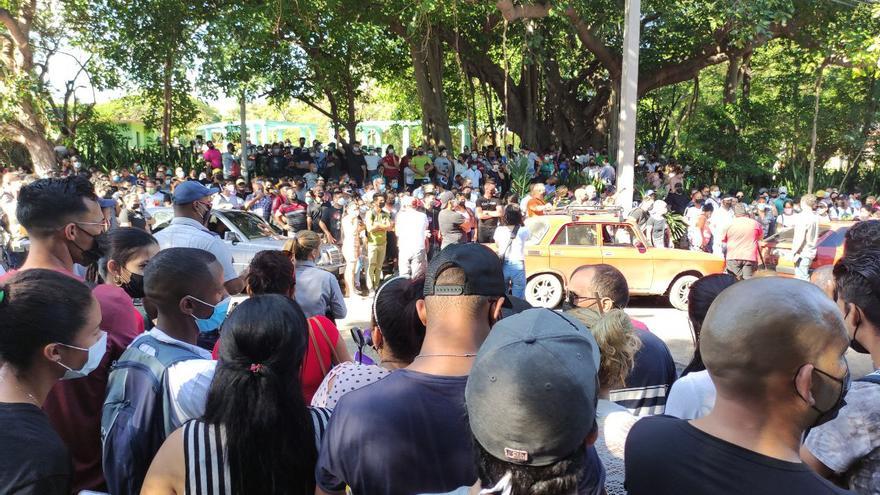
![]() 14ymedio/EFE, Madrid, July 17, 2023 — Cubans who have been living in Panama irregularly for at least a year can, like other foreigners in the same situation, obtain a “temporary protection permit” beginning on Monday.
14ymedio/EFE, Madrid, July 17, 2023 — Cubans who have been living in Panama irregularly for at least a year can, like other foreigners in the same situation, obtain a “temporary protection permit” beginning on Monday.
As announced by the Panamanian National Migration Service (SNM) on Friday, the permit will give immigration status for a period of no longer than two years.
“This temporary permit is intended to provide protection to the irregular migrant population that is in a vulnerable condition, subject to risks and dangers from the smuggling of migrants and the different forms of human trafficking,” said the SNM.
All foreigners, without distinction of nationality, who have remained in the country for a period of not less than one year will be eligible. Appointments to start the procedure can be requested from this Monday, July 17, through the SNM website.
“People benefiting from this permit will be able to reside in Panama for two years, complying with the tax, social security, health and legal obligations required,” said the official statement, which does not specify the cost of this visa.
Before the expiration of this temporary permit, beneficiaries must make the change of status for one of the migratory categories in force in the country, the letter added.
The official information also clarified that “every foreigner who maintains a valid passport and meets the requirements required by the rule will be able to opt” for the new permit.
Panama has 4.2 million inhabitants, and there are 249,000 foreigners, about 6% of the population, according to the results of the national census carried out in 2023.
The Central American country, economically strong in the last decade, received thousands of foreigners, especially Venezuelans fleeing the crisis in their country, who were able to obtain a temporary migratory status through the Crisol de Razas program, highly criticized by xenophobic nationalist sectors.
The country allowed the free transit of Cuban travelers until March 2022, when it announced the establishment of visas. In those days, the migratory exodus was beginning its peak, and Panama was one of the trampolines for the citizens of the Island on their route to the United States via Nicaragua, which four months earlier had announced a visa waiver.
Panama’s decision caused strong protests from those who already had purchased their tickets and could not change them without losing their money. After three days planted in front of the Panamanian embassy in Havana, hundreds of them who were traveling up to March 16 managed to be exempted from the visa requirement.
The cost of the visa is 50 dollars and allows a stay of 24 hours in transit.
Translated by Regina Anavy
____________
COLLABORATE WITH OUR WORK: The 14ymedio team is committed to practicing serious journalism that reflects Cuba’s reality in all its depth. Thank you for joining us on this long journey. We invite you to continue supporting us by becoming a member of 14ymedio now. Together we can continue transforming journalism in Cuba.
